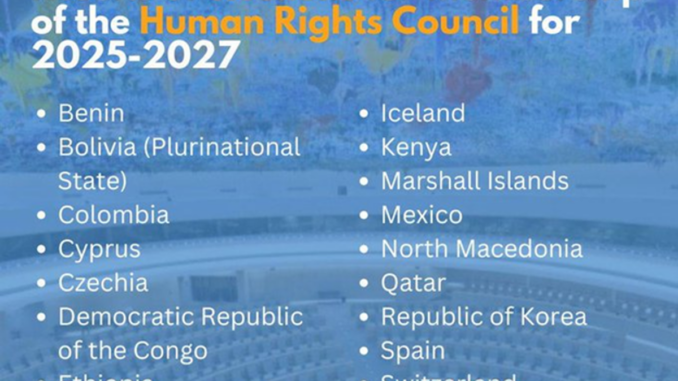
Five African Nations join UN human rights council amid controversy
Your go-to source for in-depth coverage of political developments, economic trends, social affairs, and vibrant cultural stories from across the continent.

Five African Nations join UN human rights council amid controversy
The United Nations has announced the election of five African nations, including the Democratic Republic of the Congo (DRC), to the UN Human Rights Council for a three-year term starting in January 2025.
The nations of Benin, Gambia, Kenya, Ethiopia, and the DRC secured seats on the Council following elections held at the UN headquarters in New York.
The vote comes at a time of heightened tension, with local protests and criticism from human rights organizations over what they describe as political repression in the DRC.
Human rights groups have voiced concerns, particularly regarding the DRC’s record.
“There are serious violations happening in Congo, and this election doesn’t reflect accountability,” a representative from a prominent human rights NGO stated.
In response, the DRC’s Minister of Human Rights reaffirmed the country’s commitment to improving its human rights practices.
“We are dedicated to using our membership in the Council as a platform to enhance efforts to protect human rights both domestically and globally,” he said.
The UN Human Rights Council, established in 2006, is responsible for the promotion and protection of human rights around the world.
It plays a key role in addressing human rights violations and works to resolve them through diplomacy and advocacy.
Comprising 47 member states elected by the UN General Assembly, the Council serves a renewable three-year term.
One of its core functions is the Universal Periodic Review (UPR), a mechanism that assesses the human rights performance of all 193 UN member states.
Through this process, the Council encourages countries to uphold their international human rights obligations.
Based in Geneva, Switzerland, the Council typically convenes three times a year but can call special sessions to address urgent human rights crises when necessary.
I am an avid African news observer, and an active member of Daily Mail Africa.
I’m Passionate about staying informed on diverse topics across the continent,
I actively contribute to publishing on political, economic and cultural developments in Africa.